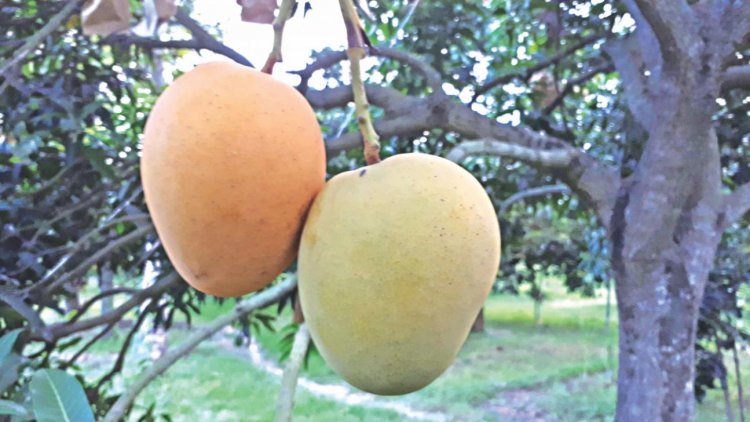Maha: Conserving rare mangoes of Himayat Bagh

Aurangabad: While tourists throng Maharashtra's Aurangabad for its heritage sites, what many don't know is that the city is also home to some rare varieties of mangoes that go by sumptuous names.
The king of fruits may be grown across the country, but Himayat Bagh, in the heart of Aurangabad city, has seven to eight rare varieties named after Indian sweets and sherbets for their distinct flavour, colour and texture.
Spread over 300 acres, the 17th century garden has hundreds of kesar mango trees planted in 15 acres, and the fruit research here is making a serious attempt to conserve the lesser-known varieties of the summer fruit.
"Fruit trees of Himayat Bagh, earlier known as Mohammadi Bagh, are documented in history. Fruits from this garden used to be sent to royal Mughal families," historian Dr Dulari Qureshi claimed.
Apart the popular 'kesar', the garden houses varieties such as 'imarti', 'doodh peda', 'agarbatti', 'gulab khaas' and 'safed maloda'.
The garden, under the administration of Vasantrao Naik Agriculture University of Parbhani, is taking steps to conserve and revive the dying varieties.
"The rare mango trees in the garden are nearly 40 to 50 years old, have unique names and are identified by their peculiar characteristics," said Dr M B Patil, officer in- charge of the centre.
Named after a sweet, fried delicacy, 'imrati' mangoes have a pinkish hue, while 'doodh peda' mangoes taste like sweetened milk, he said.
The 'agarbatti' variety has the aroma of an incense stick, 'gulab khaas' has the flavour of a sherbat (cool summer drink) and 'safed maloda' mangoes are named so because of their whitish skin, the official said.
The garden is also home to 'niranjan' mangoes that arrive during monsoon in August-September every year, he said.
A couple of decades ago, some of these varieties were found in Osmanabad district of Marathwada, but the trees were felled over a period of time, he said.
Although there is an obvious demand for Alphonso and kesar mangoes in the market, it is important to conserve and popularise the lesser-known varieties of the fruit as well, he said.
Nearly 50 trees of these rare species have been planted in different parts of Himayat Bagh after grafting, and they will bear fruits in the next three to five years, the official said.
The research centre is willing to provide farmers with saplings of these rare varieties in order to keep them fading out into oblivion, he added















































